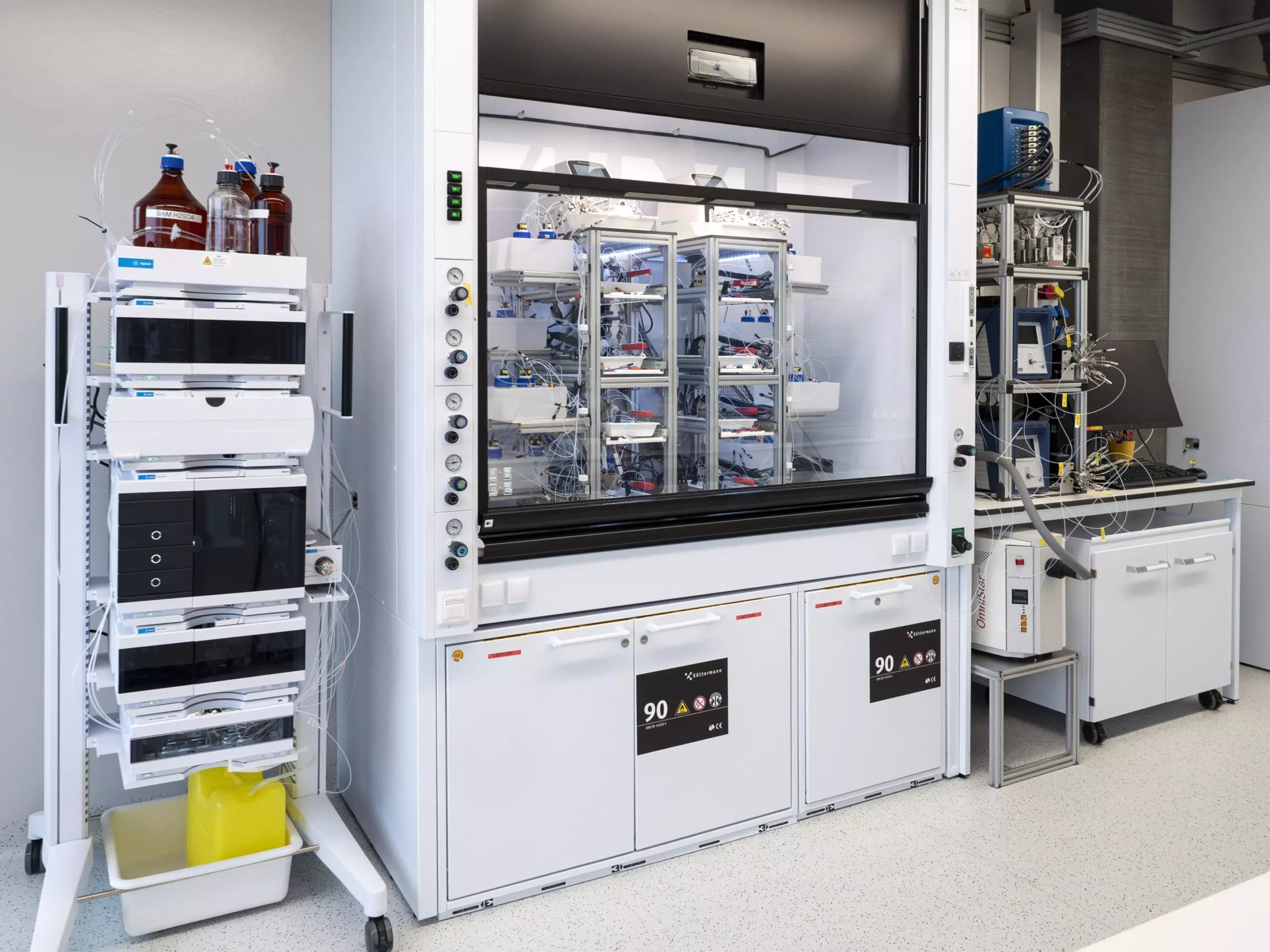The process of converting CO2 back into synthetic fuels, also known as synfuels, presents numerous challenges. While the concept of reversing the combustion process to create fuel is intriguing, the actual implementation is far from simple. One of the main difficulties lies in the fact that CO2 electrolysis can lead to the formation of more than 20 different products simultaneously. These products are not easily separated from each other, making the process of obtaining high-quality synthetic fuels a complex and time-consuming task.
Researchers at Empa and the Paul Scherrer Institute (PSI) have been working tirelessly to address these challenges and find innovative solutions. Through the Joint Initiative SynFuels, they have developed a groundbreaking system that allows for the investigation of multiple reaction conditions, catalysts, and electrode materials simultaneously. This system consists of 10 individual reactors, each equipped with specialized instruments and connected through a network of tubing. By automating data collection and analysis, researchers are able to generate large amounts of high-quality data at an unprecedented pace.
During the development of this system, researchers encountered the need for new instrumentation that was not readily available on the market. In collaboration with Agilent Technologies, they co-developed the world’s first online liquid chromatography device, which allows for real-time identification and quantification of liquid reaction products during CO2 electrolysis. This innovative approach not only enhances the efficiency of data collection but also opens up new possibilities for research in this field.
Open Access to Research Data
In an effort to promote collaboration and knowledge sharing, the researchers at Empa have made their software solution available to scientists at other institutions on an open-source basis. They are also committed to sharing their data with the wider research community through the PREMISE project, which aims to establish standardized methods for storing and sharing research data. By making their data accessible to others, the researchers hope to inspire new insights and discoveries in the field of synthetic fuel production.
Future Implications
The new parallel CO2 electrolysis system developed by Empa and PSI is set to play a vital role in the upcoming phases of the National Center of Competence in Research NCCR Catalysis. By sharing both their data and expertise with other Swiss research institutions, the researchers aim to foster a culture of collaboration and innovation in the scientific community. Moving forward, they will continue to refine their hardware and software to further advance the field of synthetic fuel production and accelerate the discovery of sustainable energy solutions.
The development of innovative research tools and a commitment to open access to data are essential components of advancing the field of synthetic fuel production. Through collaboration and knowledge sharing, researchers can overcome complex challenges and unlock new opportunities for sustainable energy solutions.


Leave a Reply